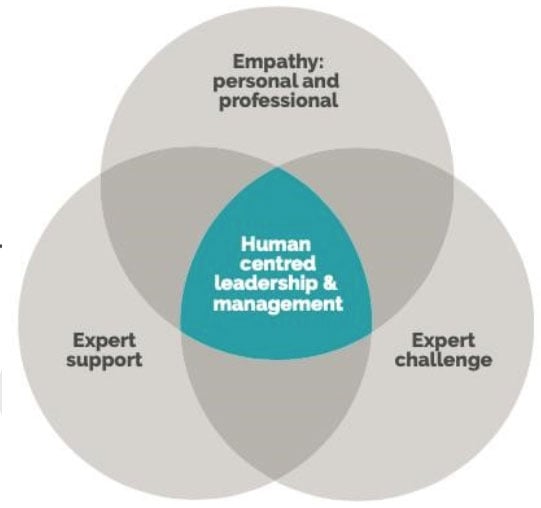Andy Dickson has been managing people, teams and functions for 32 years. He is Head of Global Customer Solutions at Impact and has recently celebrated his 25th year of working here. In this anniversary series he will be sharing his top tips, thoughts and learning about how to better manage people. Number one is all about conversation as a key practice for successful management.
One of the most important things I have learned in my time as a manager is the importance of conversation. Most issues can be traced back to a lack of dialogue and it saddens me to hear of the missed opportunities, misunderstandings, and wasted talent that result from this. People need to talk – even those that don’t particularly want to – and as managers we need to listen.
Having good dialogue is vitally important but it’s also crucial that, as a manager, you make sure the amount of time you spend talking in that conversation is minimal. Every interaction is an invaluable opportunity to gather information on how things are for that person, which, in turn, will help you understand how to support and challenge them appropriately and effectively.
At Impact we talk about human-centred organisations, and in these organisations, there are three things that a manager needs to have and to give: empathy, expert support, and expert challenge. The diagram below illustrates how these three capacities intersect.

These key capacities are needed in different amounts, at different times, for different people, but they are all required for good management practice.
Empathy with your colleague allows you to understand what is going on for them, to step into their shoes and appreciate situations from their point of view. It allows you to ask yourself, how is it for them?
Expert support enables you to help your colleague with their challenges, their thinking, their role, and their effectiveness. This type of support is crucial as it comes from an informed place – you may be the only person that can give them that expert support.
Expert challenge is key for when your colleague gets stuck. We all need to be challenged occasionally – challenged to raise our game, break our habits, or see things from a different perspective. This type of challenging is very supportive, as it helps people to grow, move on, and understand their potential. Sometimes it requires confronting unacceptable behaviour, but even these difficult conversations must never be avoided. Grasp the nettle and make sure there is clear commitment and clarity on what happens next.
Having outlined these three vital capacities, here are nine more specific top tips for facilitating excellent conversations with your people:
- Always remember that your number one job as a manager is to have conversations with your people. Fundamentally, this will enable them to do their best work and achieve the results you all need.
- Plan these conversations and make sure you have them with everyone. Avoid preferences or bias, and keep in mind that the people who avoid conversations are usually the ones who need them the most.
- Create ample time for this dialogue and defend it from other stakeholders.
- Ensure that these conversations are regular, rather than just a one-off, ‘tick box’ activity.
- Make them little and often, so that they come to reflect your working relationship.
- But be ready for when someone might need a bigger conversation and be sure to give them the time it deserves.
- To quote the British comedian Vic Reeves: ‘Don’t let it lie!’ If there is something that needs addressing, then address it – the sooner the better.
- Be thoughtful about when and where to have the conversations; there are good times and good places, but there are also bad ones that could ruin your dialogue and derail your relationship.
- It’s better to talk than not talk, so don’t lose heart if a conversation seems forced or unsuccessful – it’s part of a process and is still better than not having one at all.
Read more about how to facilitate intentional, powerful conversations.
Andy Dickson is Head of Global Customer Solutions at Impact.
